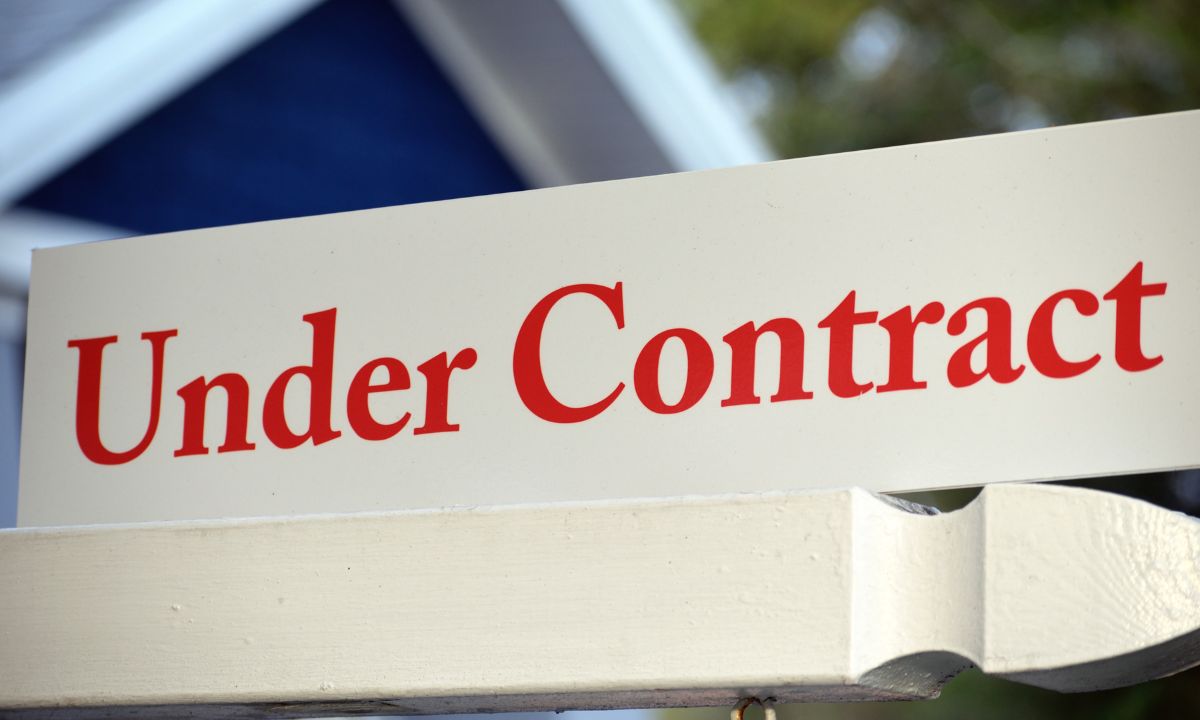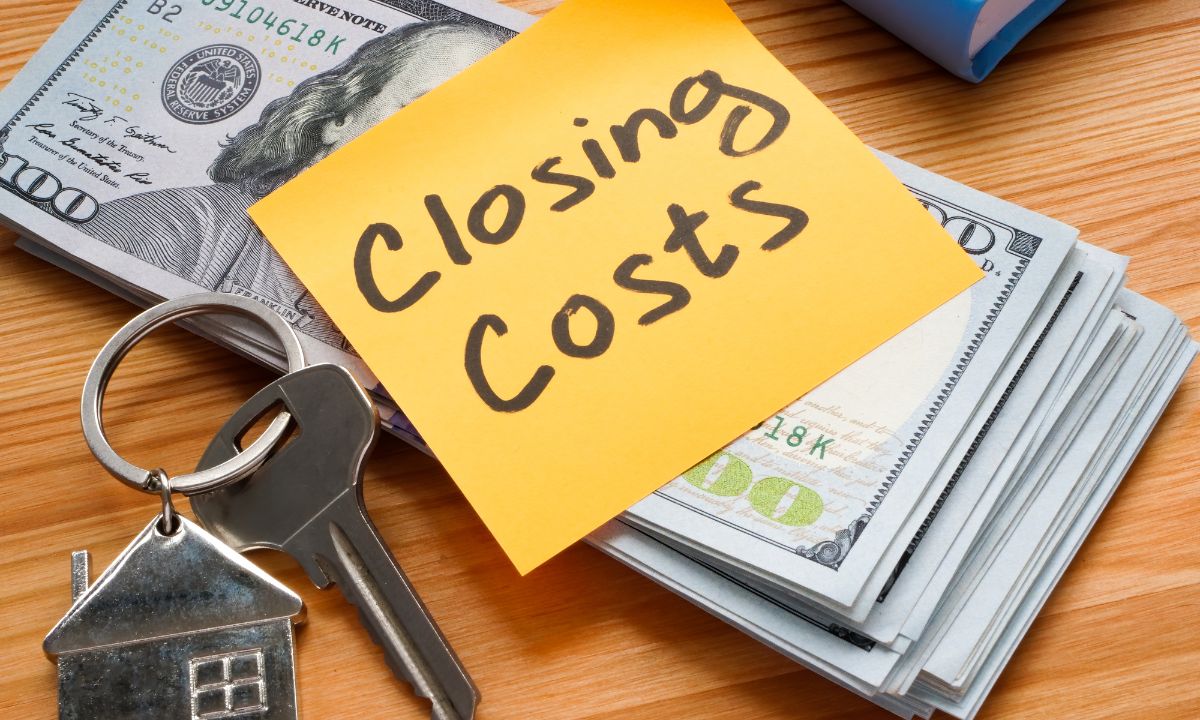 Navigating the real estate market can be challenging, especially with all the industry-specific terms that get tossed around. Two phrases you’re likely to encounter are “pending” and “under contract.” While they might seem similar at first glance, they represent different stages of the home-buying process. Let’s break down what each term means and how they impact your home-buying or selling journey.
Navigating the real estate market can be challenging, especially with all the industry-specific terms that get tossed around. Two phrases you’re likely to encounter are “pending” and “under contract.” While they might seem similar at first glance, they represent different stages of the home-buying process. Let’s break down what each term means and how they impact your home-buying or selling journey.
What Does “Under Contract” Mean?
When a home is listed as “under contract,” it means that the seller has accepted an offer from a buyer. However, the sale is not yet final. There are still several steps that need to be completed before the deal can close. For instance, the buyer might need to secure financing, complete a home inspection, or fulfill other contingencies specified in the contract.
Key Points About “Under Contract”:
- Offer Accepted: The seller has agreed to the buyer’s offer.
- Contingencies: The sale depends on certain conditions being met.
- Still Active: The property might still be shown to other potential buyers as a backup.
What Does “Pending” Mean?
Once a home is labeled as “pending,” it indicates that all the contingencies have been satisfied, and the sale is moving toward closing. This stage signifies a higher level of certainty that the transaction will be completed, as most of the potential hurdles have been cleared.
Key Points About “Pending”:
- Contingencies Met: All conditions in the contract have been fulfilled.
- Final Steps: The sale is nearing completion, typically awaiting final paperwork.
- Less Active: The property is usually taken off the market and no longer shown to potential buyers.
Transitioning from “Under Contract” to “Pending”
The transition from “under contract” to “pending” involves fulfilling all the conditions laid out in the contract. For example, if the contract requires a home inspection, the sale can only move to pending status once the inspection is completed and any necessary repairs are agreed upon or resolved.
Moreover, the buyer must secure their mortgage financing during this phase. Any issues with financing can revert the status back to active, putting the home back on the market.
Why These Terms Matter to Buyers and Sellers
Understanding these terms can help both buyers and sellers manage their expectations. For buyers, knowing that a home is “under contract” means there’s still a chance to put in a backup offer. For sellers, moving from “under contract” to “pending” is a significant milestone, indicating that they are closer to finalizing the sale.
In summary, “under contract” means an offer has been accepted but there are still hurdles to clear, while “pending” signifies that all contingencies have been met and the sale is nearing completion. By understanding these terms, you can better navigate the real estate market and make informed decisions.
 Navigating the real estate market can be a complex journey, especially with the variety of terms and statuses you encounter during your search for the perfect home. One such term that often confuses homebuyers is “sale pending.” What does it mean when a property is listed as “sale pending,” and how should you approach these listings? Let’s break it down.
Navigating the real estate market can be a complex journey, especially with the variety of terms and statuses you encounter during your search for the perfect home. One such term that often confuses homebuyers is “sale pending.” What does it mean when a property is listed as “sale pending,” and how should you approach these listings? Let’s break it down. In recent years, the concept of eco-friendly homes has gained significant traction, and for good reason. As awareness of environmental issues grows, more homeowners are seeking ways to minimize their carbon footprint while also reaping the benefits of sustainable living. We will discuss the world of eco-friendly homes, exploring their sustainable features and the potential cost savings they offer. From solar panels to energy-efficient appliances, there’s a plethora of options available to conscientious homeowners looking to make a positive impact on the planet.
In recent years, the concept of eco-friendly homes has gained significant traction, and for good reason. As awareness of environmental issues grows, more homeowners are seeking ways to minimize their carbon footprint while also reaping the benefits of sustainable living. We will discuss the world of eco-friendly homes, exploring their sustainable features and the potential cost savings they offer. From solar panels to energy-efficient appliances, there’s a plethora of options available to conscientious homeowners looking to make a positive impact on the planet. So, you’re considering buying a second home? Whether it’s a cozy cabin in the woods, or a beachfront retreat, the idea of owning a second property is undoubtedly exciting. However, before you get swept away by visions of lazy weekends and family gatherings, it’s crucial to understand the financial implications, especially when it comes to mortgages. Here are some suggestions to help you work through the mortgage considerations when buying a second home.
So, you’re considering buying a second home? Whether it’s a cozy cabin in the woods, or a beachfront retreat, the idea of owning a second property is undoubtedly exciting. However, before you get swept away by visions of lazy weekends and family gatherings, it’s crucial to understand the financial implications, especially when it comes to mortgages. Here are some suggestions to help you work through the mortgage considerations when buying a second home. The roles of buyer’s agents and seller’s agents often swirl together in a complex dance of negotiations, contracts, and property evaluations. Understanding the distinctions between these two types of agents is crucial for consumers looking to navigate the labyrinth of buying or selling a home. Moreover, there’s a scenario where one agent might take on both roles, adding another layer of intricacy to the process.
The roles of buyer’s agents and seller’s agents often swirl together in a complex dance of negotiations, contracts, and property evaluations. Understanding the distinctions between these two types of agents is crucial for consumers looking to navigate the labyrinth of buying or selling a home. Moreover, there’s a scenario where one agent might take on both roles, adding another layer of intricacy to the process. Buying a home is an exciting journey, but it’s not without its twists and turns. One specific daunting aspect for many homebuyers is understanding the sphere of closing costs. These additional expenses can catch even the most prepared buyers off guard if they’re not properly understood. So, let’s discuss the world of closing costs and shed some light on what to expect when purchasing your dream home.
Buying a home is an exciting journey, but it’s not without its twists and turns. One specific daunting aspect for many homebuyers is understanding the sphere of closing costs. These additional expenses can catch even the most prepared buyers off guard if they’re not properly understood. So, let’s discuss the world of closing costs and shed some light on what to expect when purchasing your dream home. In today’s world, where the safety of our homes and loved ones is paramount, investing in a robust home security system is essential. Whether you’re a homeowner or renting, ensuring your peace of mind through effective security measures is achievable. Let’s discuss the essentials of home security systems and how you can fortify your home against potential threats.
In today’s world, where the safety of our homes and loved ones is paramount, investing in a robust home security system is essential. Whether you’re a homeowner or renting, ensuring your peace of mind through effective security measures is achievable. Let’s discuss the essentials of home security systems and how you can fortify your home against potential threats. Are you contemplating whether to dive into the real estate market and invest in a new construction home? It’s an exciting prospect, but like any significant decision, it comes with its own set of pros and cons. We will discuss the intricacies of this choice to help you navigate your way through.
Are you contemplating whether to dive into the real estate market and invest in a new construction home? It’s an exciting prospect, but like any significant decision, it comes with its own set of pros and cons. We will discuss the intricacies of this choice to help you navigate your way through. Are you ready to start the journey of acquiring your dream home? One of the most exhilarating yet daunting steps in this process is negotiating the deal. Whether you’re a first-time buyer or a seasoned investor, mastering the art of negotiation can make all the difference in securing your dream home at the best possible price. In this guide, we’ll explore some effective real estate negotiation strategies to help you navigate this crucial phase with confidence.
Are you ready to start the journey of acquiring your dream home? One of the most exhilarating yet daunting steps in this process is negotiating the deal. Whether you’re a first-time buyer or a seasoned investor, mastering the art of negotiation can make all the difference in securing your dream home at the best possible price. In this guide, we’ll explore some effective real estate negotiation strategies to help you navigate this crucial phase with confidence. Buying a home is one of the most significant investments you’ll ever make. It’s not just about finding the right location or the perfect layout; it’s also about understanding the property’s history. Knowing the ins and outs of a home’s past can save you from potential headaches down the road. So, how can you research a property’s history before making the big decision? Let’s look at the steps you can take:
Buying a home is one of the most significant investments you’ll ever make. It’s not just about finding the right location or the perfect layout; it’s also about understanding the property’s history. Knowing the ins and outs of a home’s past can save you from potential headaches down the road. So, how can you research a property’s history before making the big decision? Let’s look at the steps you can take: